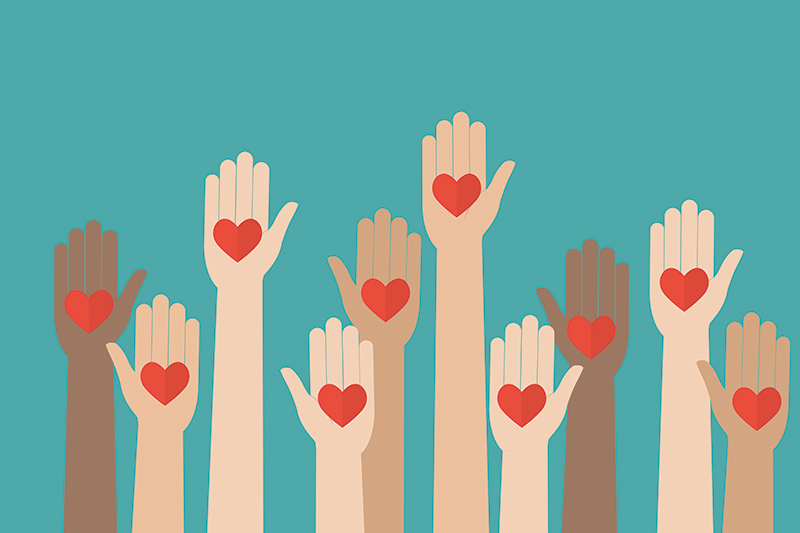The year 2020 is focusing an intense spotlight on the cracks in American culture, and the need for change couldn’t be more urgent. Leaders are challenged by the loss of human life, by economic despair, and by the countless disturbances, large and small, created by the COVID-19 pandemic. The additional energy created by activists worldwide seeking positive change in the face of police brutality is reshaping society’s ethical fabric unlike anything in recent memory. As tensions mount, there is increasing curiosity on what it means to be a truly effective leader. The answer is empathy.
Compassion in End-Of-Life Care
While previously employed at a hospice facility in Springfield, Massachusetts, I became acquainted with the work of Swiss-American psychiatrist Elisabeth Kubler-Ross, known for identifying the five stages of death and dying.
“The most beautiful people we have known are those who have known defeat, known suffering, known struggle, known loss, and have found their way out of the depths,” Kubler-Ross explained. “These persons have an appreciation, a sensitivity, and an understanding of life that fills them with compassion, gentleness, and a deep loving concern. Beautiful people do not just happen,” she said, describing the individuals who, through the very essence of their beings, embody empathy.
I have learned that the emotional intelligence behind empathy is an essential trait, whether innate or acquired from lived experiences. Without the ability to, “walk in someone else’s shoes” and truly understand others’ feelings, I wouldn’t have gotten very far in my hospice care career or any profession, for that matter.
The Advantages of Altruism
Empathetic leaders cater to the human condition. They stand out because their tunnel-vision is focused not only on you, but on those around you as well. That thoughtful quality encourages curiosity and nurtures all of the connections that follow. The skill of kind consideration doubles as respect. Engaging in empathy empowers individuals to feel included in sharing their experiences, ensuring that no one feels stuck, marginalized, or left in silence. Empathy is also a fundamental part of being an ally. Authentic leaders are active partners, not only for one another but especially for those who long to be acknowledged, appreciated, and included as well.
Essentials of Understanding In Inclusion
Genuine empathy brings intent and action to inclusivity. The awareness that we are not alone and that diversity in the human experience includes differing points of view allows us to acknowledge each audience’s unique nature.
Empathy also means not simply nodding in agreement, but asking for opinions outside of your own, exposing you to the needs of those who may not share your experiences. With America in dire need of increased inclusion, empathy when met with cultural consistency can reveal the privileges gained during groupthink. When similar people are seated at a table, their identical ideologies can be counter-productive and limit opportunities and outcomes for all.
Personally and Professionally, Empathy Pushes You to Do Better
Engaging in empathy tackles the outdated workplace belief that emotions equal weakness. To the contrary, informative insight can create commitment, cooperation, and collaboration in professional settings. Insight strengthens teams and increases feelings of safety, security, support, and trust. Empathy can transform the work environment from a cold occupational culture to a community of coworkers who care not just about the work they produce, but the people they work alongside as well.
For leaders with empathy in their tool belts, not only can job satisfaction surge among your team, but insight can also aid in communicating effectively overall, proving empathy an essential skill for any future endeavor.
Sandi Coyne-Gilbert is an accomplished leader with experience in both the education and nonprofit sectors. Coyne-Gilbert specializes in working with adult learners and is enthusiastic about instilling a passion for lifelong learning in her students. Her work with at-risk and marginalized groups provided her with unique insights into the power of education for people in transition. Coyne-Gilbert brings her experiences to the classroom as program director for the master’s degree in Organizational Leadership at Goodwin University. Are you ready to make a lasting impact? She’d love to hear from you. Call us today: 800.889.3282 or learn more at: www.goodwin.edu/leadership.
